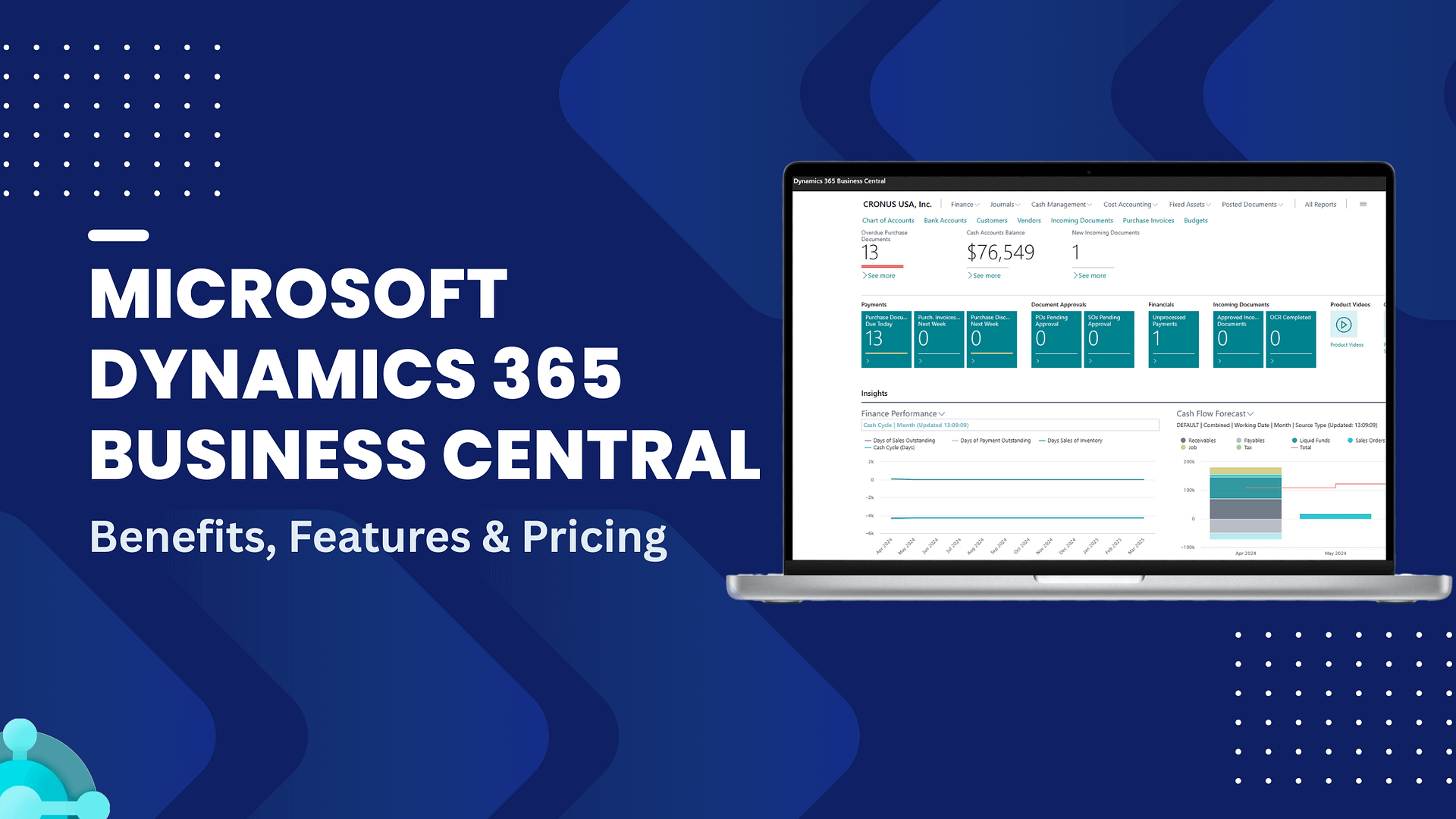For a smooth Microsoft Dynamics 365 Business Central implementation, ensure a well-structured deployment process that minimizes downtime and maximizes efficiency.
What is an ERP Solution for Manufacturing?
Enterprise Resource Planning (ERP) is integrated software designed to streamline, automate, and manage core business processes in manufacturing. From production planning and inventory control to supply chain management, ERP solutions unify your entire operational processes into one cohesive system, improving efficiency and visibility across your organization.
ERP systems in manufacturing have evolved significantly from basic inventory management to comprehensive solutions integrating data analytics, real-time tracking, and predictive insights, transforming businesses into agile, data-driven enterprises.
As part of the Microsoft ecosystem, Business Central integrates seamlessly with familiar tools like Excel, Outlook, Power BI, and Teams, enabling better collaboration and efficiency. With built-in automation, AI-powered insights, and flexible deployment options, it’s a smart choice for businesses looking to modernize their operations.
If you’re considering an ERP solution, this guide will walk you through the key benefits, features, pricing, and implementation process of Microsoft Dynamics 365 Business Central to help you make an informed decision.
Why Manufacturing Businesses Need ERP
Manufacturing companies often grapple with inefficiencies such as production bottlenecks, inventory mismanagement, and supply chain disruptions. ERP solutions address these issues by:
Enhancing production scheduling accuracy.
Automating inventory tracking and management.
Streamlining supply chain operations for reduced lead times.
According to recent industry reports, companies adopting ERP experience an average of 35% improvement in operational efficiency and 30% reductions in inventory costs.

Types of ERP for Manufacturing
On-Premise vs. Cloud ERP
On-Premise ERP: Installed locally, offering complete control and customization, suitable for businesses requiring highly specific features.
Cloud ERP: Hosted remotely, providing flexibility, scalability, and significantly lower upfront and ongoing IT costs.
Cost Comparison:
- Cloud ERP solutions can reduce IT costs by up to 50% compared to on-premise setups due to reduced hardware expenses, maintenance fees, and energy costs.
- Cloud solutions typically operate on a subscription-based pricing model, allowing predictable budgeting.
How ERP Addresses Key Manufacturing Challenges
ERP systems address critical challenges in production scheduling, inventory tracking, and supply chain efficiency by:
Automating production scheduling and material planning.
Providing real-time inventory tracking and alerts.
Enhancing supply chain visibility and integration, significantly reducing downtime and operational disruptions.

How to Choose the Right ERP for Manufacturing
Understanding your unique business needs is crucial:
Identify Needs: Evaluate specific pain points and operational challenges.
Consider: Scalability, ease of integration, user experience, and total cost of ownership (TCO).
Checklist:
Scalability
Integration capabilities
User-friendliness
Vendor reliability
Support and training availability
Transparent and predictable pricing structure
Key Features of ERP Implementation
Best Practices
Conduct thorough business analysis and readiness assessment.
Define clear objectives and KPIs.
Choose an experienced ERP partner.
Implement comprehensive employee training and change management.
Common Challenges & Solutions
Challenge: Resistance to change.
Solution: Effective communication and training programs.
Challenge: Data migration issues.
Solution: Detailed data mapping and phased rollouts.
Measuring the ROI of ERP in Manufacturing
Evaluating ERP success involves monitoring critical KPIs:
Production Efficiency: Reduce cycle times and production delays, potentially saving up to 40% in labor costs.
Inventory Management: Lower inventory holding costs by up to 30%.
Cost Control: Monitor and manage production costs effectively, with potential savings in procurement and waste reduction.
Customer Satisfaction: Improve order accuracy and timely deliveries, significantly boosting customer retention rates.
Manufacturers report an average ROI of 150-200% within three years post-ERP implementation, highlighting the significant long-term benefits.
The Future of ERP in Manufacturing
Emerging trends include:
Increased adoption of AI-driven predictive analytics for proactive decision-making.
Greater integration with IoT for real-time data accuracy and operational insights.
Enhanced mobile capabilities for remote management and monitoring, offering flexibility and responsiveness.
How to Measure the ROI of ERP
Essential KPIs for manufacturing businesses include:
Reduction in production downtime
Improved inventory accuracy rates
Enhanced forecast accuracy
Increased productivity levels
Take Your Next Step
ERP solutions transform manufacturing businesses by increasing efficiency, reducing costs, and facilitating strategic growth. Ready to streamline your operations, reduce overhead costs, and achieve remarkable results? Schedule your free ERP consultation today to explore tailored solutions that align with your manufacturing needs and budget.
